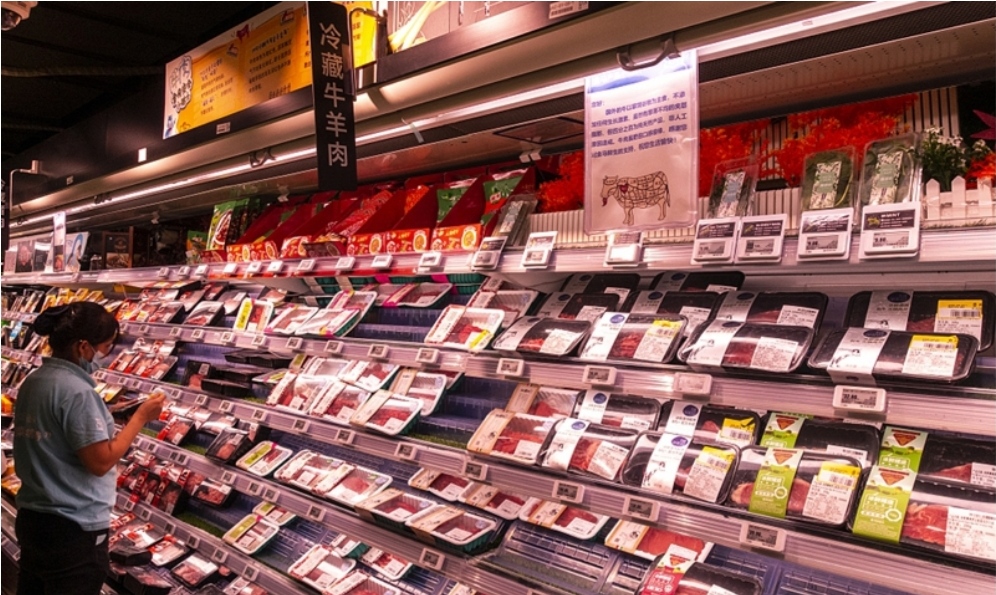Resumption of Australian beef imports by China, direct fallout of Indo Aussie FTA

Imported beef is sold in a supermarket in Shanghai
The approval paving the way for the resumption of Australian beef import by China is a clear sign of Beijing becoming a bit jittery of, tremendous surge in bilateral trade ties between India and Australia. The FTA signed by the two countries is now contributing to bilateral trade growth.
Australian media outlets have reported that China has lifted its ban and is now quite eager to import Australian beef. As it is, this product is never going to be imported by India. Now five major Australian beef exporters have been granted permits to resume exports to China, as confirmed by Australian Agriculture Minister Murray Watt.
Patrick Hutchinson, CEO of the Australian Meat Industry Council (AMIC), said in a statement said that the council welcomes confirmation through the China Import Food Enterprises Registration System of China’s reinstatement of export approvals for five out of seven Australian meat export processors that were suspended in 2020.
Although there was no official confirmation from the Chinese side as of press time on Thursday, observers following China-Australia trade called the development a sign of direct fallout out of growing India Australia trade. Now China hopes that increased trade in agricultural commodities will be conducive to the development of bilateral ties with Australia.
In 1995 India had imported goods worth INR 12750 crores. This became worth INR 267750 crores in 2022,an annualized growth rate of nearly 12%. The main products now exported by Australia are Coal briquettes, gold and Petroleum gas. Now Agriculture products like pulses, fruits and wines have been added.
After threatening the previous Morrison government during the eruption of trade disputes, China now realizes its strategical mistake. So now instead of politicizing, or weaponizing business, China wary of India has now adopted a more rational approach, with current Albanese government. A series of settlements on the issues of barley, wine and now, as reported, beef, is a result of such a pragmatic approach.
Trade and economic ties certainly become a stabilizer and booster for bilateral ties, and only a mutually beneficial nature of bilateral trade will make it something that deserves efforts from both governments to nurture, rather than to politicize.
Since taking office in 2022, the Albanese government has strengthened its predecessor’s effort towards a stronger trade ties with India. It has also responded positively to overtures from Beijing. Hence, bilateral ties have bottomed out and stabilized.
China has increased the imports of Australian coal ( seeing India ) barley and cotton from Australia since last year, leading to a marked growth in bilateral trade.
In March, China decided to cancel all anti dumping and anti subsidy traffic levied on Australian wine.. Australian wines appeared at the China International Consumer Products Expo in Haikou, South China’s Hainan Province, in April.
The improvement of bilateral ties with Australia is in the long-term interest of China presently facing a slow down and tough competition from India.
However all the above has not stopped China from issuing a threat that Australia should not become a tool in the anti-China campaign of the US. It has not named India !!!
In 2023, China remained the No.1 destination for Australian red meat exports by volume, importing 206,193 tons of beef and 165,245 tons of lamb and mutton, according to industry portal Meat & Livestock Australia.




